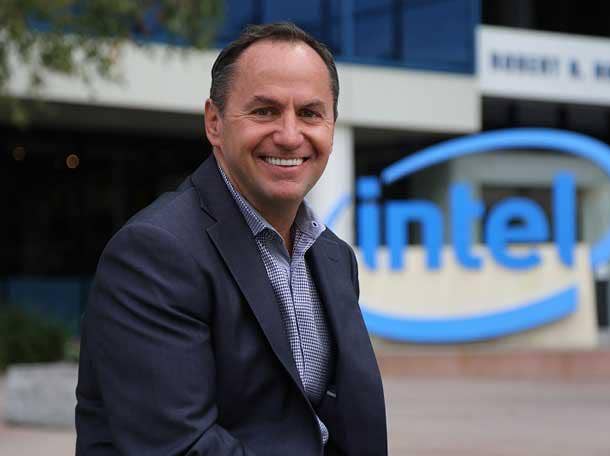Intel CEO Bob Swan: Tech Industry 'More Essential Now' Than Ever
'You provide vital services, tools and infrastructure to millions of people who are directly struggling with this virus, caring for those who are, or doing their part through social distancing and other shared efforts to help ensure the safety of family, friends and neighbors and to ultimately defeat the COVID-19 pandemic,' he says in a letter to partners and customers.

Intel CEO Bob Swan said the tech industry "is more essential now than it has ever been" as the semiconductor giant works to ensure the safety of its employees and overcome supply chain challenges in the face of the coronavirus pandemic.
Swan made the remarks in a letter to customers and partners Thursday, announcing that Intel has donated $1 million to the International Red Cross to support relief efforts while the company assesses additional ways to support local communities during the outbreak.
[Related: IDC: 'Significant Contraction' For Global Semiconductor Sales Likely]
"As you and your teams navigate the next few months, there will be challenges. I ask that you please reach out to me and my team if there is anything we can do to help you fulfill your mission or to help others who need it in the crisis," he wrote.
Reiterating previous comments that Intel continues to "operate on a relatively normal basis," Swan said the company, which provides processors for most of the world's PCs and servers, is "working hard" to sustain a "rate of on-time delivery currently greater than 90 percent" for partners and customers.
"We have collaborated to identify short-term burst shipping capacity across suppliers by working closely to share collective resources, planes and trucks to deliver the best solution for our customers," he wrote.
In the 872-word letter, published to Intel's website, Swan underlined the important role tech companies play as office environments and schools pivot to remote environments while things like telemedicine gather steam in healthcare and millions of people isolate themselves in their homes.
"You provide vital services, tools and infrastructure to millions of people who are directly struggling with this virus, caring for those who are, or doing their part through social distancing and other shared efforts to help ensure the safety of family, friends and neighbors and to ultimately defeat the COVID-19 pandemic," he wrote.
With the COVID-19 coronavirus changing the way people live and work, Swan said the world is set to experience an acceleration in the digitization of goods and services.
"Today, we are witnessing what will surely be remembered as a historic deployment of remote work and digital access to services across every domain, including medicine, education, government, entertainment and more," he wrote. "In the coming weeks and months, services will be further digitized as the creativity of a massive work-from-home population gets rolling."
But for tech companies, it's not just about using technology to ensure continuity of services but also to innovate so that the world becomes a better place, Swan said.
He highlighted some of Intel's work to combat COVID-19, including a partnership with Lenovo and BGI Genomics to accelerate the analysis of genomic characteristics of the virus. The company has also deployed "Intel platform-based robots" in Chinese hospitals to reduce human interactions.
As for safety measures, Swan said the company's Pandemic Leadership Team, which was created more than 15 years ago, is tapping the expertise of medical and safety experts to protect employees and minimize the spread of the coronavirus infection. The team is also working with local governments and public health organizations to implement best practices.
"That focus on safety applies equally to our customer and partners," Swan wrote. "At times that means we are asking for your patience as we learn to interact and collaborate in new ways."
Randy Copeland, CEO of Velocity Micro, a Richmond, Va.-based system builder and Intel partners, said he agrees with Swan's sentiment about the importance of technology, especially given the uncertainty over when the pandemic will end. He added that recent sales activity indicates that people are buying workstations in their transition to work-from-home environments.
"I think the PC industry and the tech industry are going to fare just fine through this, ups and downs and all," he said. "I don't think we're in the same situation that hotels and restaurants and airlines are in. People are going to be staying closer to home. That means the work's going to continue on. They're just going to have to find other ways to do their work."
When it comes to people who rely on high-performance workstations — which are the kind of systems that Velocity Micro builds — Copeland said tech companies will need to find new ways to ensure users can tap into workstation-like environments whether they're at a desk or on-the-go.
"I think people will make sure in the future that they're able to do real work for extended length of time from multiple locations," he said.
Last Friday, Intel announced it was recommending employees to work from home when possible and implementing new social distancing and safety measures to protect employees and contractors whose roles require them to work on site.